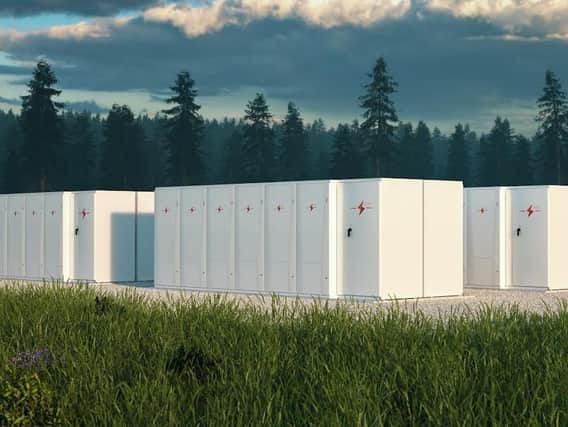Firma UK says storing energy through batteries is the future


The company's director, Andrew Jones, said that Firma UK now has 30 sites in various stages of development for solar farms and battery storage across the UK (mainly in Yorkshire and the North East) and storing energy via batteries is an absolutely crucial element at every one of these sites.
Mr Jones said that the green revolution comes with its challenges as well as its opportunities.
Advertisement
Hide AdAdvertisement
Hide Ad“It is absolutely crucial that energy-storing batteries play a major part in the roll-out of renewable energy," he said.
"They provide power to prevent blackouts and volatile costs caused by the country’s increasingly renewables-based energy system. As the energy sector strives to meet
the UK’s target of achieving a net-zero emissions society by 2050, the role that batteries play will become ever more important."
He said that relying on unpredictable British weather for electricity supply can be a problem when power supply and demand needs to be balanced second-by-second, keeping the National Grid at its required 50hz frequency.
Advertisement
Hide AdAdvertisement
Hide Ad"For example, the massive number of people switching on kettles at the same time after the England-Italy Euro 2020 final put immense pressure on the grid," he added.
“Blackouts like those in August 2019, when power to trains, hospitals and more than one million homes was briefly cut off, are the result if the balance is not kept."
Mr Jones said that too much power is just as problematic as too little and wind farms are regularly paid to switch off during particularly gusty days to avoid overloading the grid.
“Batteries can help manage some of those problems, storing excess power on windy and sunny days, ready to send it to the grid when generation is low,” he said.
Advertisement
Hide AdAdvertisement
Hide AdChanges to planning rules are making batteries easier to build and have helped give them an edge against other types of storage, such as pumped hydropower, which are much more complex. Firma UK said it is also easier to bring battery projects forward.
A few years ago, batteries tended to dispatch power for half an hour at a time before they needed re-charging. Now one-hour and two-hour durations are more typical.